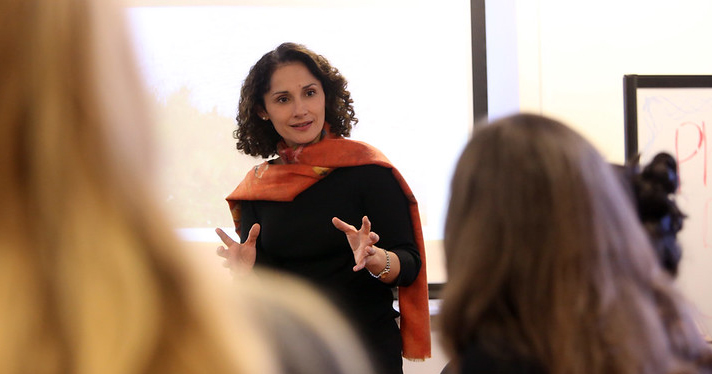
Open AI/Chat GPT
Inclusive Pedagogy
- Rhodes College Commitment to Diversity
- For a curated and regularly updated list of useful materials, please visit this page from the Office of Faculty Recruitment, Retention, and Diversity (FRRD).
- The Office of FRRD also sponsors the video series Rhodes to Equity
Teaching strategies
Classroom Discussions
Flipped Classroom
- What you need to know about the Flipped Classroom
- Flipped Classrooms: Old or New?
- How to Flip and Land on Your Feet
Designing the Course
The model of “Backwards Course Design” has been helpful for many profs as they prioritize goals and think deliberately about planning the semester. “Backwards” here simply means that you begin from the end goals or outcomes you have in mind, and then work backward from there to build the syllabus and arrange activities & assignments. The Understanding By Design page from R. S. Bowen at Vanderbilt offers a good introduction, with links to related videos & further reading. Also, U of North Texas primer.
“Metacognition” is another tool that can be helpful in the design stage, a way to build active awareness among students of how they are engaging with the course and how they build knowledge. The organization Improve with Metacognition has lots of resources at their site.
Inclusive Syllabus Design (UCLA)
The theory of Universal Design proposes building our courses, as well as our campuses, in a way that provides access to and support for all. This article by Joshua Kim in Inside Higher Ed makes a case for applying the UD principle for course design in a post-Covid world.
Community Engagement
The Campus Compact is a national organization that promotes community-engaged learning, seeking to “challenge all of higher education to make civic and community engagement an institutional priority.” The resources page of their website has a wealth of material including a syllabus library for community engaged courses.
The Lynne and Henry Turley Memphis Center coordinates a great deal of community-engaged activity at Rhodes, including the Institute for Regional Studies and the Mike Curb Institute for Music.
Building Trust and Engagement
Recently faculty at Amherst College in Math, English, Biology, and other fields worked with students on ideas for building community within and beyond the classroom. Their plans and reports are here.
As you are planning class activities, this brief roundup of active learning strategies from the U of Michigan can help generate ideas.
Working with Feedback from Students
Inviting feedback from students at midsemester or throughout the term can be a useful exercise for all, giving you more information about how students are experiencing the class and giving students a stake in their work. There are lots of models from Rhodes professors available here.
For support in navigating the IDEA course evaluation system, take a look at the resources and video workshops here.
At the Chronicle
Beckie Supiano and Beth McMurty write a weekly newsletter on teaching for The Chronicle of Higher Education. Recent entries on Crafting a Welcoming Syllabus and on teaching After the Pandemic are a great starting point.
At the ACS
The Associated Colleges of the South sponsored a broad series of Pandemic Pedagogy Workshops in 2020, focused on different disciplines and scenarios. All are available here.
Recommended Books
A few classic texts and notable recent books on teaching and learning:
Newstok is a Professor in the Department of English here at Rhodes.
- Cia Vershelden, Bandwidth Recovery,
The ACS hosted a recent discussion Verschelden hosted by Millsaps historian Stephanie Rolph, available at https://www.acsouth.edu/event/bandwidth/
- bell hooks, Teaching to Transgress: Education as the Practice of Freedom
- Paulo Freire, Pedagogy of the Oppressed
- James M. Lang, Small Teaching and Small Teaching Online
- Josh Eyler, How Humans Learn
Eyler is the Director of Faculty Development at the University of Mississippi.
Syllabus Resources
Instructional Technology Team
- This team of information services staff supports teaching and learning at Rhodes. You can reach them at help@rhodes.edu.
- Their current work in support of remote hybrid teaching is available here.
Request a Class Visit
Faculty members in their first through fifth years can request that the Director of Teaching Mentoring observe a class. This will include a pre-observation meeting, as well as a post-observation meeting. These observations and discussions allow faculty members to receive feedback from an independent source – from outside of one’s department. To request an observation, email Vanessa Rogers.
Visit a Class
Faculty members in their first, second, or third year at Rhodes are encouraged to observe a class taught by one of the College’s most outstanding teachers. Each year, the College bestows the Clarence Day Award for Outstanding Teaching upon a member of the faculty. All of the College’s Day Award winners welcome you to drop in to observe one of their classes. For a schedule of classes taught by Day Award winners during the current semester, contact Vanessa Rogers.